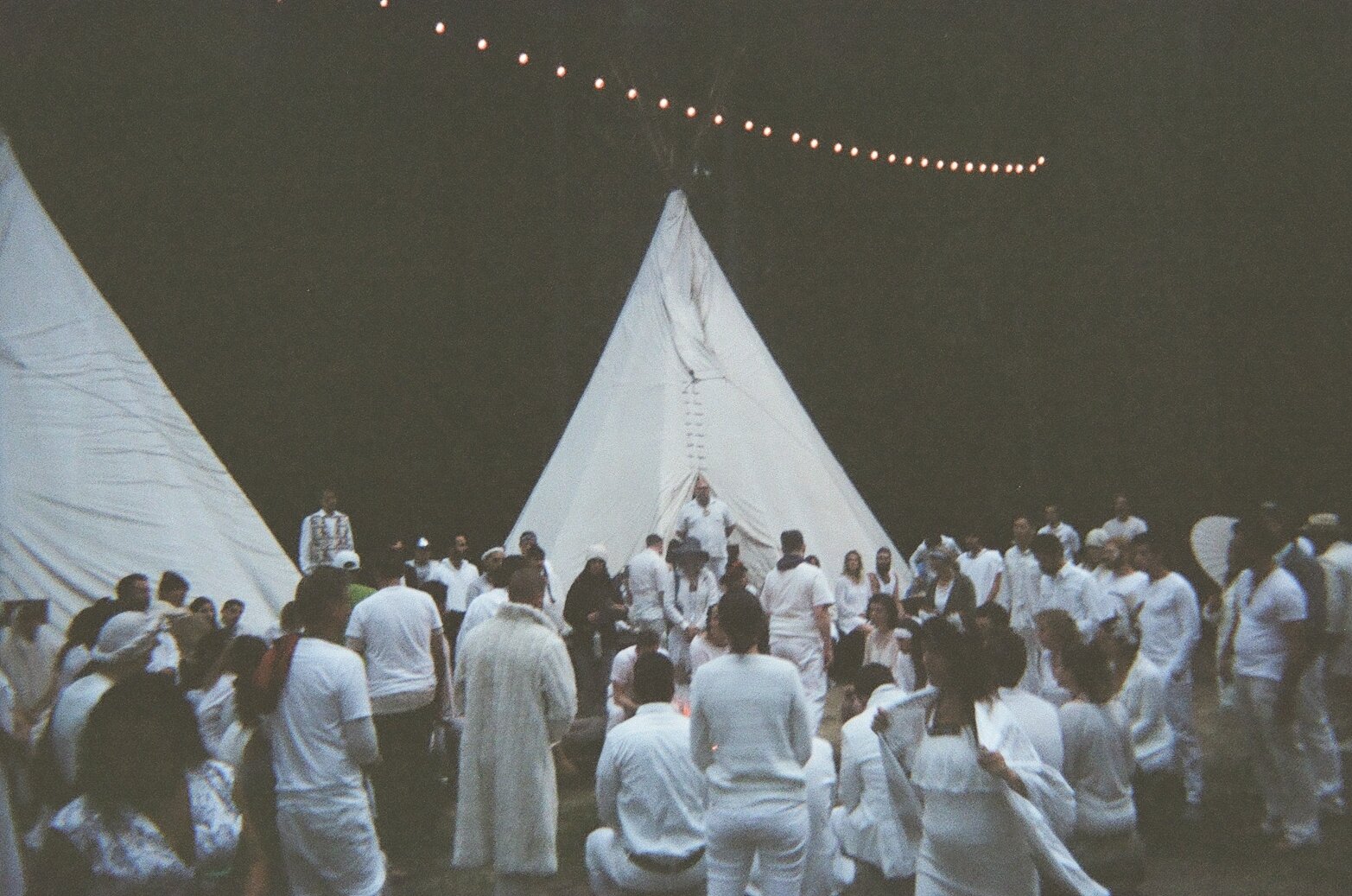PhD Research
✧・゚Digital Re-Enchantment・゚゚・。✧
Thesis Abstract
Our digital era is no less “human” or “authentic” than any other time in history, yet many people feel that the opposite is true. This study investigates Camp Grounded’s digital detox and summer camp for adults as an example of the “social fact” of anti-tech narratives, and as an opportunity to better understand how we live with technology today.
Why do people attend a digital detox, and what happens when they return to their digital lives? This ethnography of a digital detoxing community views detoxing as a symptom of Weber’s “disenchantment,” an isolating and meaningless modern existence, which can be countered through New Age “re-enchantment.”
At Camp Grounded, digital detoxers hope to recreate the experience of tribal life, using imaginaries of neuroscience to envision the dangerous, unnatural, and “disenchanted” world they live in. At camp, detoxers feel a spiritual connection to nature, to each other, and a deeply rooted sense of belonging to the human race. Returning to their digital lives after their time in the woods, digital detoxers are inspired to prioritise their personal growth and happiness.
This research explores how people can have their own understandings of categories like “use" and "non use" of technology, how science is used and misused by people in everyday life, and the ways in which people imagine technology to be harmful.
A Love Letter to the Internet ✩•̩̩͙*ೃ♡
I studied Digital Detoxing from the perspective of a highly online Millennial. Because of this, the thesis opens with “A Love Letter to the Internet.”
Between 2014 and 2017 I conducted ethnographic fieldwork with a community of “digital detoxers” who gathered each summer at Camp Grounded’s digital detox and summer camp for adults in the Mendocino forest of Northern California, USA.
My PhD thesis is titled Digital Re-Enchantment: Tribal Belonging, NewAge Science and the Search for Happiness, and you can download the full thing for free (with no institutional access or anything) here.
☆.。.:*・°☆.。.:*・°☆.。.:*・°☆.。.:*・°☆
Thesis Findings
✧ Digital detoxers weren’t simply removing technology, but creating community, connecting with each other, with nature, and with their inner selves.
✧ Each of these forms of “connection” served as a remedy for what they perceived to be a broken American society in 2017.
✧ I explain that this is best understood as a kind of New Age, spiritual “re-enchantment” of a “disenchanted” modern world.
✧ I argue that detoxers saw modern life as progressively “disenchanted” compared to the environment in which humans evolved, and Camp Grounded sought to recreate what was lost.
✧ Using neuroscience, ritual, therapeutic techniques & mindfulness, detoxers found spiritual resistance against their surroundings.
✧ Inspired by their experience, detoxers hoped to use technology towards their own goals and happiness, and to live intentionally rather than mindlessly.
The cover page of my PhD thesis
“I have always loved the internet. I remember the robotic whirring of our dial-up modem, which would connect me to AOL from the house where I grew up [...] My Dad would play chess against the computer each night, humming and tapping his foot in the office while I slept down the hall. At that time, we had a book of every website you could visit, and my Mum ran a computer club at my school with a collection of original Apple Macintoshes. Aged 12, I downloaded MP3s for my green iPod mini. Aged 13, when I got home from school, I would log in to MSN Messenger and chat with friends, sending early iterations of emojis, and making my “status” a song lyric.”
“[...] on Tinder profile after Tinder profile, I saw the phrase “willing to lie about how we met,” as if it were something to be ashamed of. While I had always felt comfortable online, other people felt friction with it; it was clumsy, artificial, or even harmful. ”





























